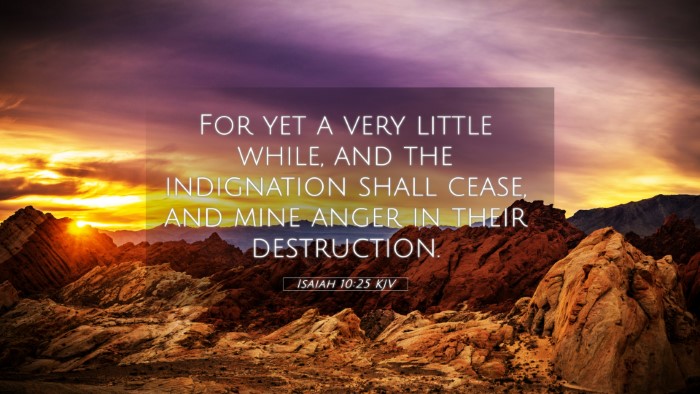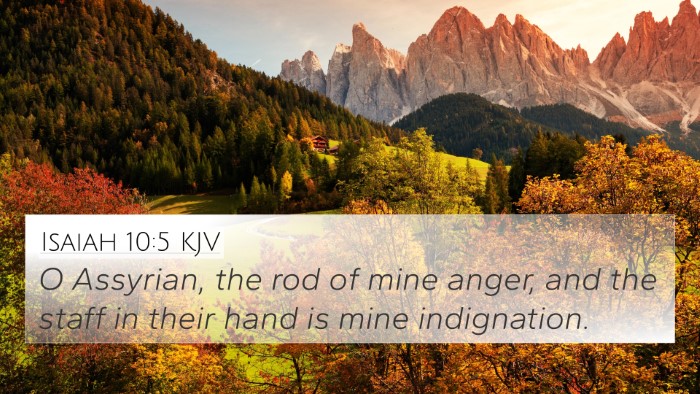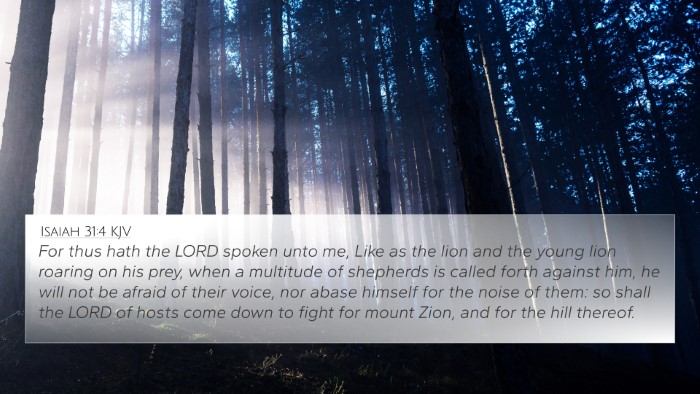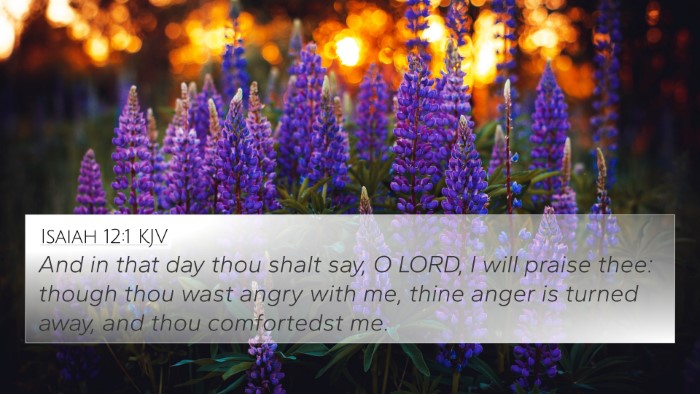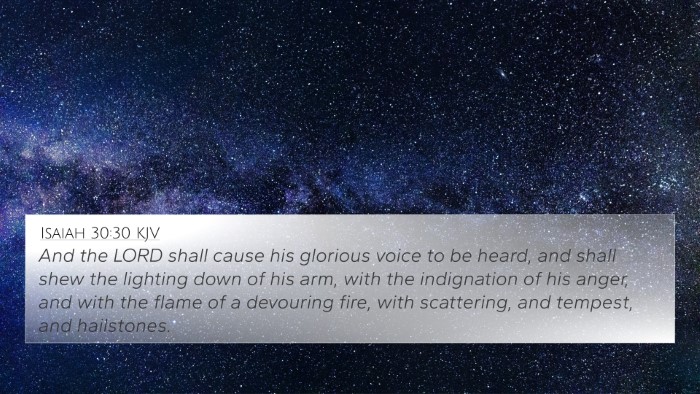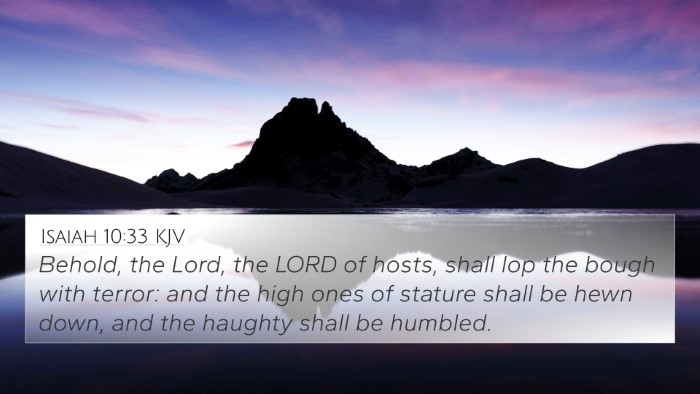Understanding Isaiah 10:25
Isaiah 10:25 states: “For yet a little while, and the indignation shall cease, and mine anger in their destruction.” This verse communicates a profound message about God's punishment and His ultimate intention of mercy for His people.
Context and Background
The Book of Isaiah is a prophetic text, attributing much of its content to the prophet Isaiah who conveyed God’s messages during times of great crisis in Israel. In Chapter 10, we find the Lord expressing displeasure over the oppression His people faced.
Commentary Insights
- Matthew Henry's Commentary: Henry emphasizes that God's judgments are for a just reason. Even when the wrath of God seems severe, it is temporary. In this verse, the promise of cessation highlights God's eventual mercy beyond discipline.
- Albert Barnes' Notes: Barnes points out that the "little while" indicates a limited scope of time for God’s anger. He suggests that God's ultimate aim is to restore rather than to destroy, indicating that the punishment is corrective, not simply punitive.
- Adam Clarke's Commentary: Clarke interprets the anger of God depicted here as a necessary action against sin, aligning it with the concept of divine justice. This verse reassures the faithful that God’s mercy follows His chastisement.
Thematic Connections
This verse, while focused on God's anger, simultaneously unveils the theme of hope and restoration. It resonates with several other scriptures:
- Psalms 30:5: "For his anger endureth but a moment; in his favor is life: weeping may endure for a night, but joy cometh in the morning."
- Hebrews 12:6: "For whom the Lord loveth he chasteneth, and scourgeth every son whom he receiveth."
- Micah 7:18-19: "Who is a God like unto thee, that pardoneth iniquity, and passeth by the transgression of the remnant of his heritage? he retaineth not his anger forever, because he delighteth in mercy."
- Romans 5:9-10: "Much more then, being now justified by his blood, we shall be saved from wrath through him."
- Jeremiah 29:11: "For I know the thoughts that I think toward you, saith the Lord, thoughts of peace and not of evil, to give you an expected end."
- Isaiah 54:7-8: "For a small moment have I forsaken thee; but with great mercies will I gather thee."
Connections between Bible Verses
Understanding Isaiah 10:25 can be deepened through inter-Biblical dialogue. This verse establishes connections with similar themes of chastisement and restoration found throughout the Scriptures. Key themes include:
- God's Discipline: God's wrath is temporary and rooted in love, as found in Hebrews 12:6.
- Restoration After Judgment: The promise of hope similar to that in Jeremiah 29:11 indicates a future of peace following trials.
- Divine Justice and Mercy: Micah 7:18-19 expresses the balance between justice and mercy that God embodies.
Practical Applications
As we navigate our personal lives, reflecting on this verse encourages us to recognize the transient nature of trials and God’s faithfulness to restore and redeem. It serves as a reminder of:
- The importance of repentance: Acknowledging our failings can lead to the renewal of our relationship with God.
- Hope in affliction: Just as Isaiah proclaims, we can trust in God’s ultimate mercy and restoration.
- Encouragement during hardships: Knowing that God's anger is momentary can foster resilience in times of trouble.
Understanding the Cross-References
Engaging with other scripture can greatly enhance understanding. Here are practical tools for exploring cross-referencing:
- Bible Concordance: Use to find specific themes and related verses efficiently.
- Bible Cross-Reference Guide: Available in many study Bibles, it helps identify connections quickly.
- Comprehensive Bible Cross-Reference Resources: Consider using various websites or books dedicated to cross-referencing biblical texts.
Conclusion
The insights drawn from Isaiah 10:25 remind us of God’s just nature, the temporary nature of His anger, and the promise of restoration that follows. Through careful study and comparison with related scriptures, believers can cultivate a hopeful perspective and deeper understanding of God’s overarching plan. This passage serves as a pivotal reminder of the balance between divine anger and unwavering mercy, offering profound hope to those facing trials.

